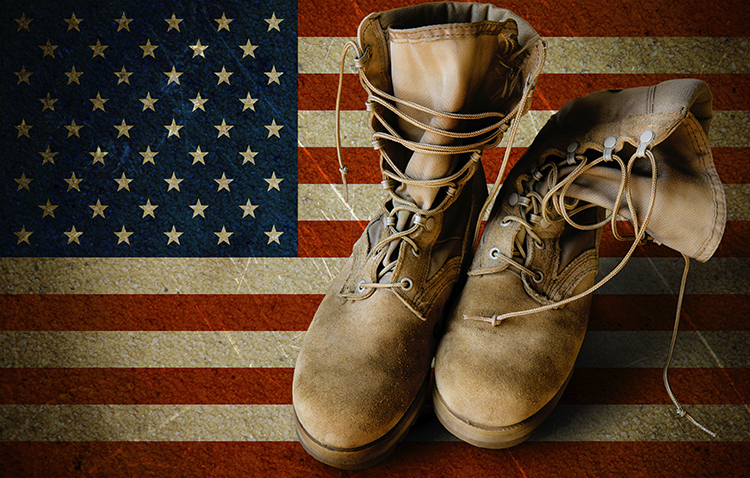
Two former members of the military who were refused benefits for their service-related disabilities are facing a potentially brighter future, thanks to work from two DWT attorneys.
The cases came to the firm through the Veterans Consortium Pro Bono Program, which helps provide legal representation to veterans and family members seeking to appeal claims denied by the Veterans Administration. Last year, DWT was pleased to host a training session put on by the program at our Seattle office and via the Internet. Two DWT partners who participated—John Cameron of our Portland office and Erica Wilson of our San Francisco office—each received a case assignment shortly after the session.
Wilson, a patent litigator who served as an engineering officer in the U.S. Navy prior to entering law school, had not previously had an opportunity to do pro bono work on behalf of her fellow veterans. “That’s why I was so excited about this project,” she says.
She took on the case of an Arkansas man who served as an Army guard patrolman immediately after World War II. During his service, he developed fallen arches in both feet as a result of long marches, a problem that resulted in bilateral foot disability. His claim for benefits bounced around the VA system for nearly 14 years, until the Board of Veterans’ Appeals finally denied it last spring, ruling there was no “service connection.” The veteran appealed to the U.S. Court of Appeals for Veterans Claims.
That’s when Wilson took the case. Through all the back and forth over the claim, she says, “an important fact about the veteran’s medical record was missed.” In a conference with lawyers from the Secretary of Veterans Affairs, Wilson presented her case, citing numerous errors in the Board’s ruling. The Secretary’s office concurred, and agreed to file a joint motion for remand to the Board of Veterans’ Appeals.
While the Veterans Consortium Pro Bono Program generally only handles cases before the U.S. Court of Appeals for Veterans Claims, the veteran asked Wilson to continue representing him as the case returned to the Board of Veterans’ Appeals, and she agreed. Following briefing and submission of additional evidence, the Board ruled in August that the veteran was “entitled to service connection” for his bilateral foot disability. The Board also found that the VA improperly denied his claim that a stomach disability is also service-related, and remanded that for further development of the case file. Wilson will continue working with the veteran to establish his disability rating and potential benefits.
Wilson intends to volunteer for more pro bono cases on behalf of veterans in the future. She has received accreditation as a veterans claims attorney, which allows her to practice regularly before the Board, and is taking a CLE that covers the claims process from beginning to end.
Cameron had success as well on behalf of his client—a Navy veteran with 24 years of service, 18 of which were spent in the engine rooms of various vessels. That service gave rise to the veteran’s considerable hearing loss, and in 2006, he was awarded a 40 percent disability rating relating to this service-connected disability. But three years later, the VA took away his compensation and reduced the rating to “non-compensable.”
Once Cameron got involved, the government quickly corrected its action. “They didn’t even file a response to our opening brief,” says Cameron. Instead they reinstated the veteran’s disability rating and compensation retroactively to 2009, and prospectively into the future. “There is a VA regulation that makes disability ratings almost untouchable once they have been in effect for five years, which is now the case.” says Cameron. “So the VA probably won’t mess with this veteran again.”
Cameron says the lesson he took away from the case is that “the system is incredibly bureaucratic and mechanical—just what you might suspect from the recent VA scandal. I appreciate the fact that they have a large volume of cases, but my case didn’t turn on some abstract issue of law. Instead, during two levels of internal administrative appeal, a VA regional office and then the VA Board of Veterans' Appeals just missed a controlling precedent of the Court of Appeals for Veterans Claims.
“I’m not at all surprised to learn that this happens routinely,” Cameron adds. “In a high percentage of these cases, it seems, the problem isn’t new law, it’s just getting the VA to do what it’s obligated to do. The fact that it involves veterans is of major concern to me. All the more need for pro bono lawyers to go and help them work through the system. Although I have never yet met my veteran client face-to-face, I have gotten to know him fairly well from our phone conversations and from reviewing his extensive VA case file.”
